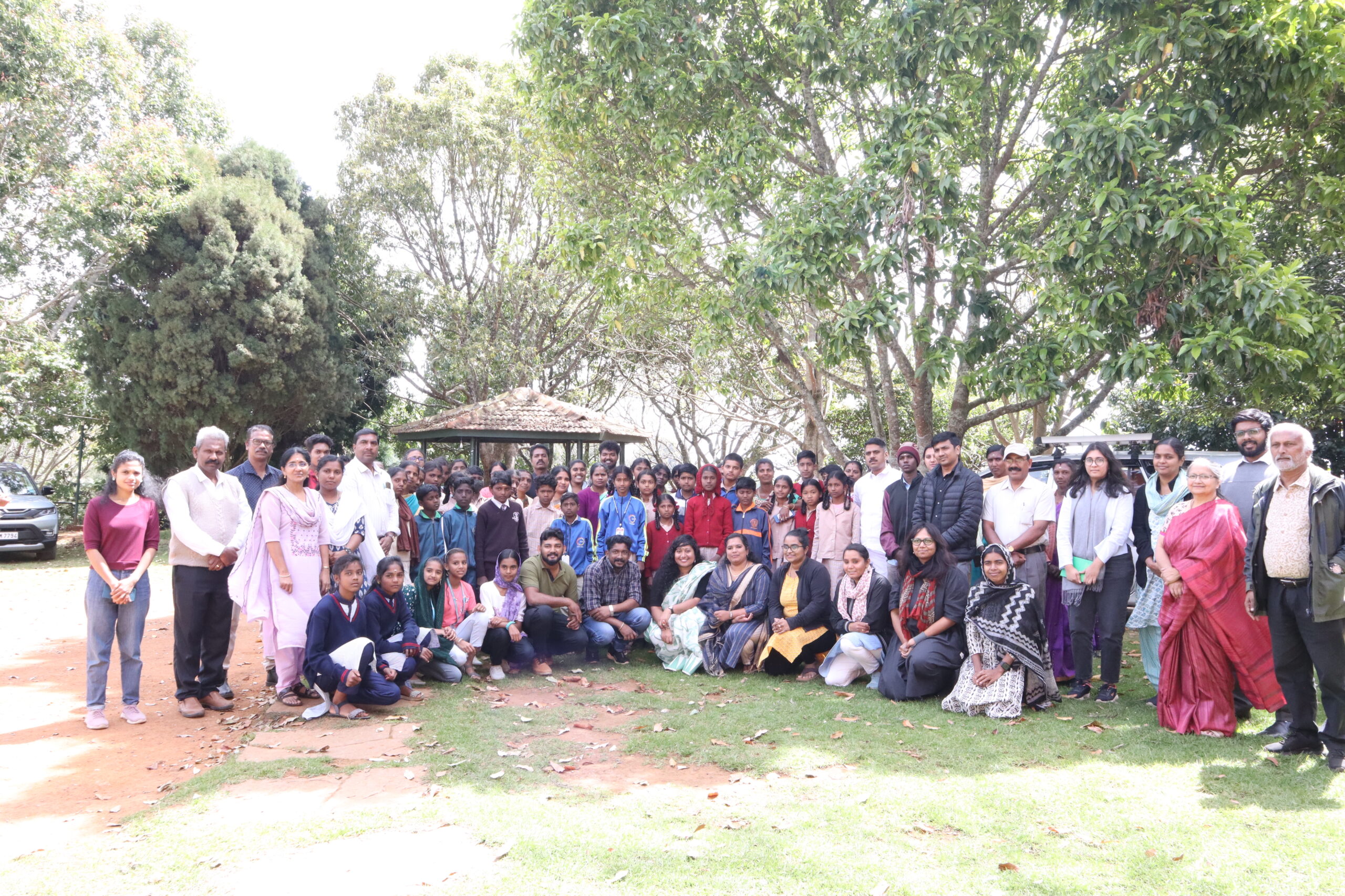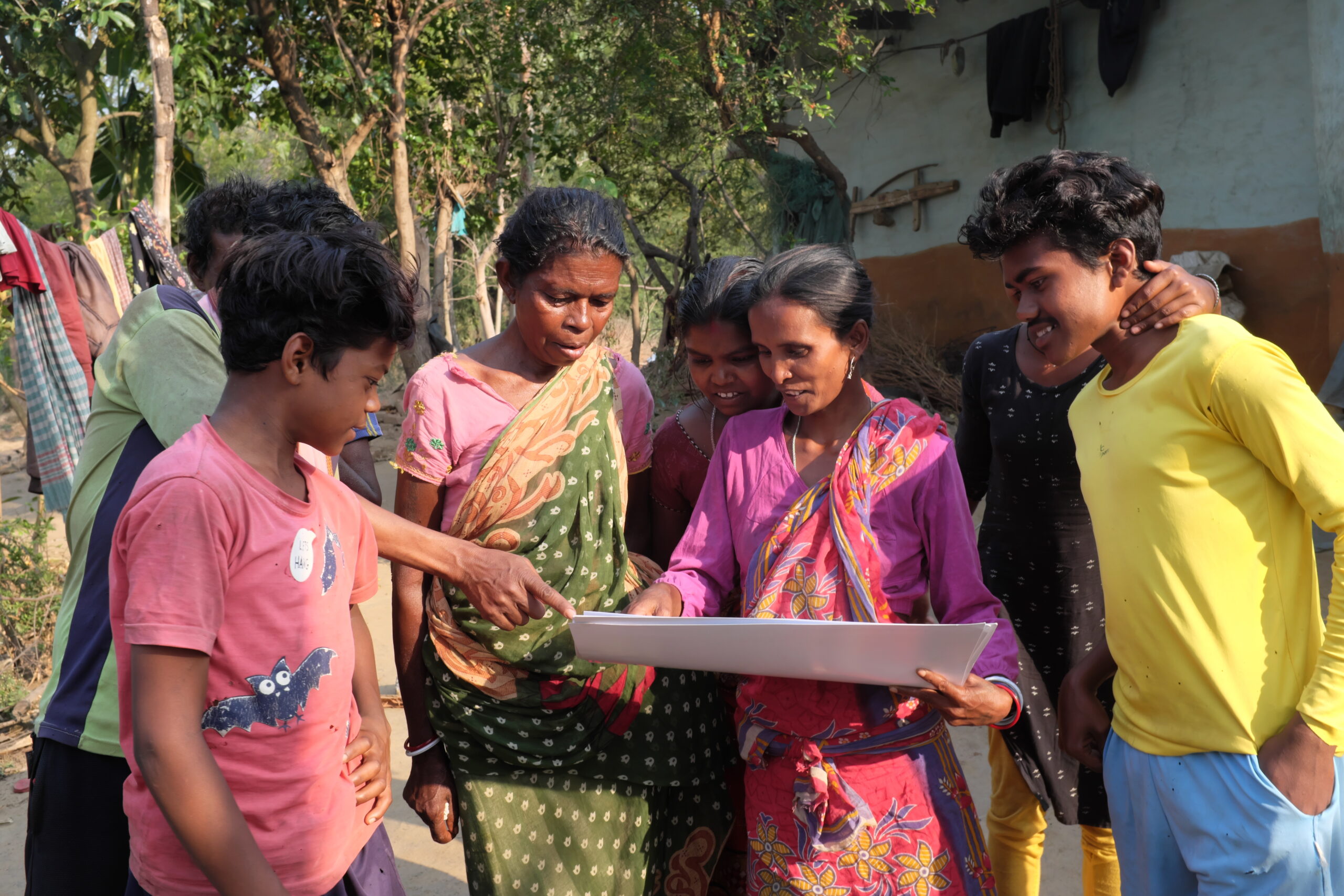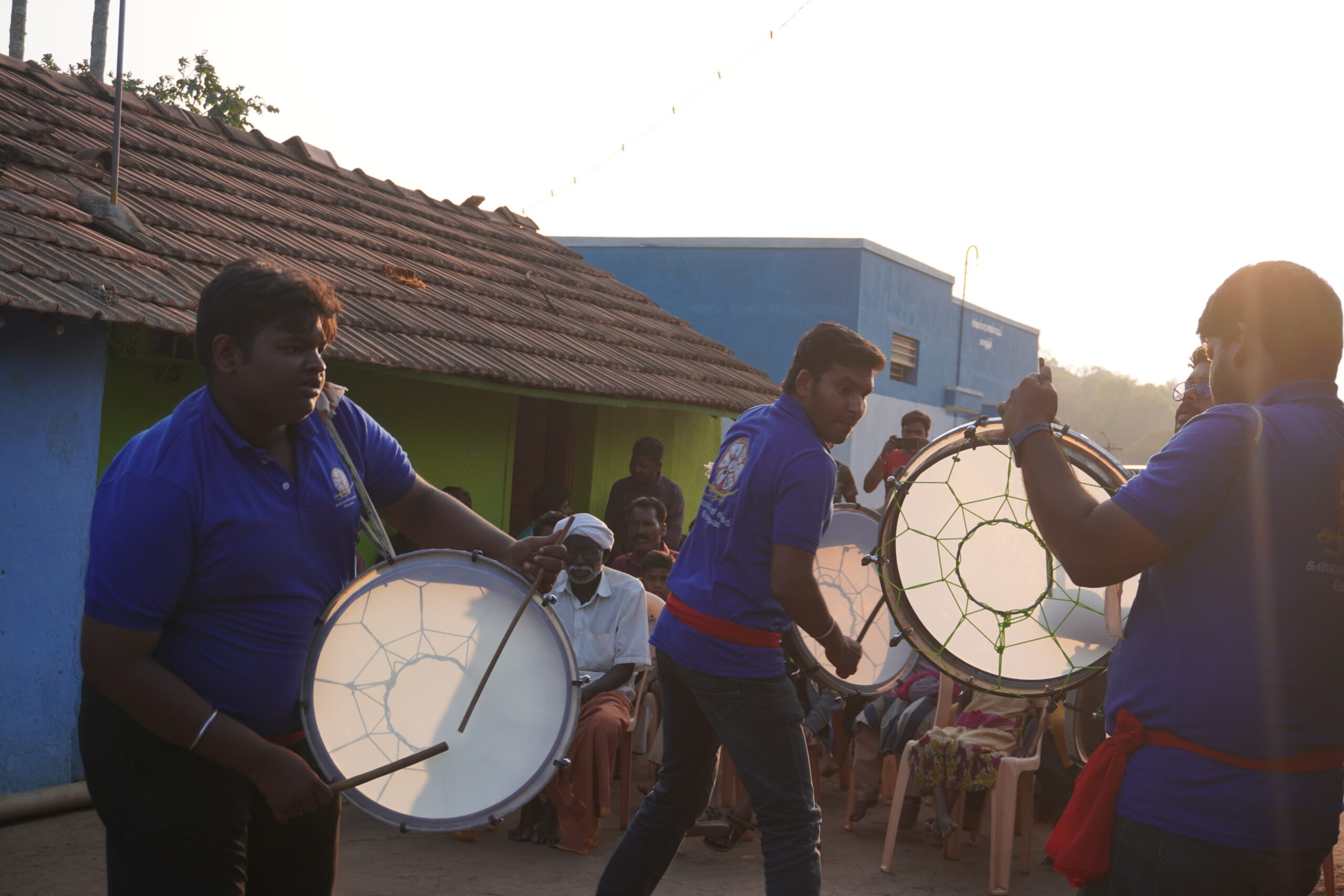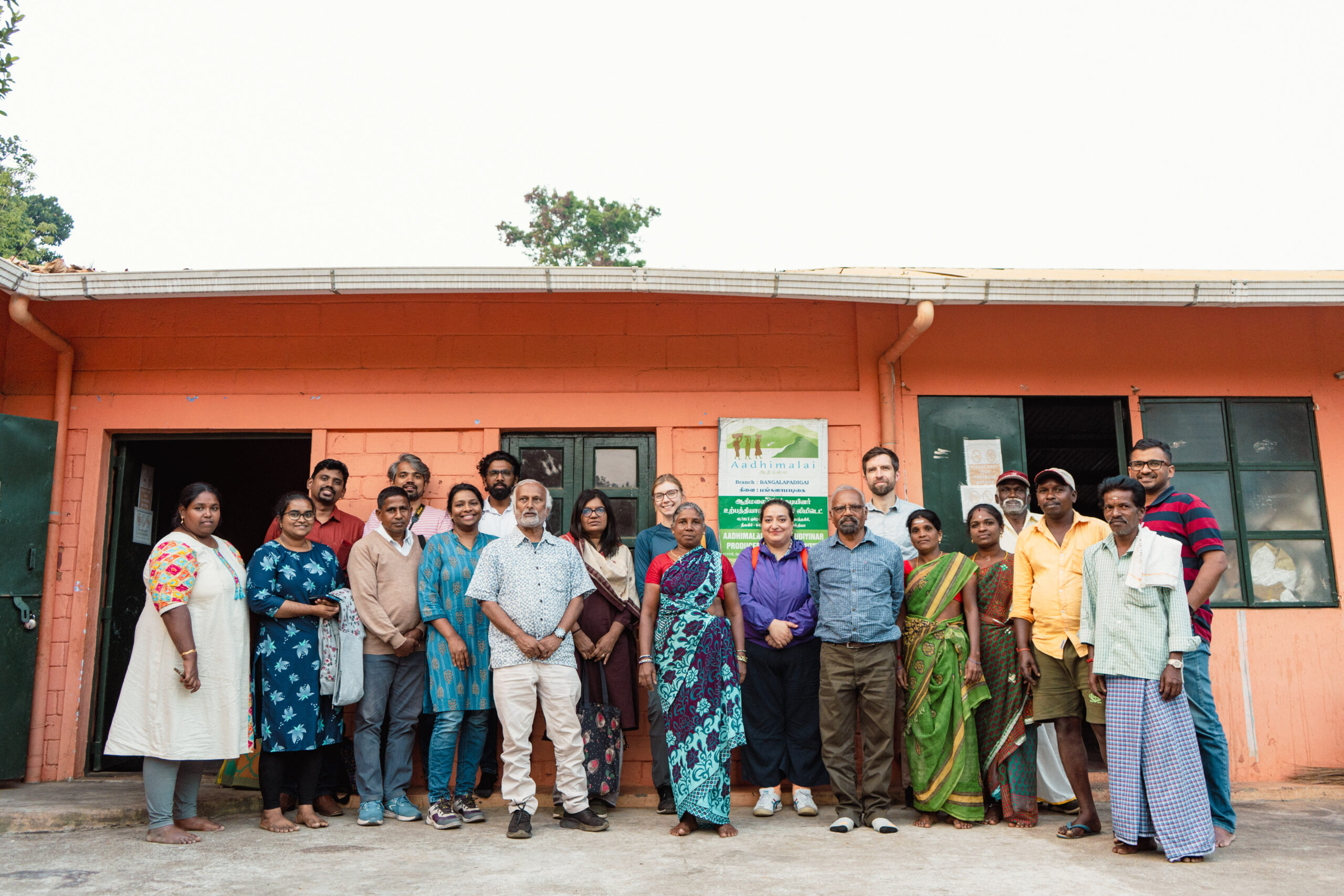March 6, 2024
By Bhavya George
Keystone Foundation, along with the Department of Education and other relevant stakeholders, have taken the past one and a half years to explore Climate Education through Climate Smart Schools. Following the principles of the Mission LiFE(Lifestyle for Environment) and green schools of Tamil Nadu, the Climate Smart Schools program has run as a pilot in 14 Schools, with 10 schools located in the Nilgiris and 4 located in Kerala and Karnataka.
The first stakeholder consultation was held in December 2022 after 6 months of implementation. In partnership with UNESCO, the second stakeholder consultation was held on February 8th, 2024 in order to provide a platform for commitments and a wide variety of transformative game changers. These consultations were held as a way to further strengthen climate literacy in order to translate political ambition into local, regional, and global action.
The consultation involved of a diverse representation of schools, students, teachers, School Management Committee members, NGOs, government officials, and panchayats from across Kerala and Tamil Nadu.
During the one-day consultation, various stakeholders voiced their opinions on climate education. Dr. Anandi Subramanian, Former Principal Adviser to MoEFCC, known for her credible initiative of the Green Skill Development Programme (GSDP), introduced the concept of green skills and their significance. In the context of climate change, she described how GSDP provides avenues to youth in waste management, water and energy audits, para taxonomy and so on. She emphasized the importance of viewing natural resources as living systems, and instilling this idea in students from a young age through skill-based pedagogies.
Mr. Abhinav Kumar, a Programme Coordinator with UNESCO, briefly introduced UNESCO and its work in different sectors. He spoke about the Seeds of Change: State of the Education Report, which mainly investigated Climate Education. Mr. Kumar expressed his joy in learning about Climate Education in the Nilgiri Biosphere Reserve through the case studies developed for the report.
Mr. Pratim Roy, Founder Director of Keystone Foundation, spoke about the relevance of the Nilgiri Biosphere Reserve as a learning hub to understand the dynamic subject of climate change. He highlighted the use of weather stations in Climate Smart Schools as tools to engage students in understanding climate patterns and local climate change.
Mr. Balamurugan, a Block Development Officer in Kotagiri, emphasized activity-based learning, which is particularly suitable to a landscape like the Nilgiri Biosphere Reserve. It is in the NBR that environments like grasslands and Shola forests can be experienced in person, rather than through photo exhibits and virtual learning. In such rich landscapes, it is important to learn about climate and climate change through lived experiences. He also emphasized on the importance of climate education from a early age, allowing for the formation of climate consciousness. He concluded that work on climate education must be a collective effort with many stakeholders’ involvement.
After a short tea break, we discussed the outcome of Climate Smart Schools, a climate education program we have hosted in the Nilgiri Biosphere Reserve for nearly two years. Ms. Bhavya George walked us through the journey of Climate Smart Schools, emphasizing important elements of climate curriculum and pedagogy like the Four Cs: critical thinking, collaboration, communication, and creative thinking. Climate Educators shared their experience in the Four Cs as they engaged with students.
This was followed by breakout sessions to discuss the needs and gaps in climate education in the Nilgiri Biosphere Reserve. We had two groups of students, one group of parents, one group of teachers, and one group of representatives from Kerala, to accommodate language inclusion and other representatives joined their group of interest.
The discussion was based on three questions:
- What do you want the children to learn from climate change curriculum?
- Do you want climate change [to be taught] as a separate subject? If yes, why? If not, why?
- What are the strengths, weaknesses, opportunities, and threats of climate change curriculum?
One hour was provided for the discussion, with each group presenting their points at the end. Student groups stressed upon the need for field-based learning as part of climate education. Teachers held a mixed opinion about the path to be taken to teach climate change, i.e as a separate subject or integrated in all subjects. However, there was unanimous agreement among all groups regarding the need to build climate-conscious individuals. From the parent’s group, they shared instances where their children have shown climate consciousness even at homes. One parent talked about her child, who has begun to care for a kitchen garden in the house.
The common thought that emerged from these discussions was the need to look at people and nature in a holistic approach, rather than as separate entities.
Post lunch, we had a panel discussion on “Climate Education through Different Platforms”. We had representation from the People’s Archive of Rural India (PARI): Ms. Sanviti Iyer, Wipro Earthians: Ms.Arathi Hanumappa, Season Watch: Ms.Suhirtha and the Tamil Nadu Green Fellows programme lead: Mr.Ajeeth N. A student from Keirbetta asked “How can we balance the needs of population and climate change impacts?”, while Mr. Rafi from Wayanad asked how PARI engages with common people without digital access, despite being an online platform.
The day ended with vote of thanks from Ms. Vidya S of Keystone Foundation. The UNESCO Seeds of Change report, along with a video summary, was given to all the schools present, along with mementos for teachers and students.

















